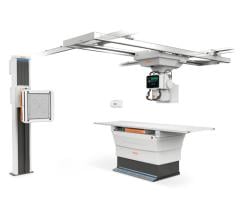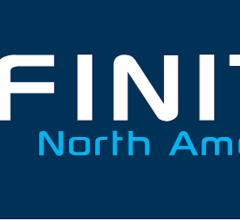March 3, 2008 - More than 80 percent of healthcare consumers say they want greater access to their medical information and test results online, according to a new survey from the Deloitte Center for Health Solutions released at the HIMSS.
The survey found consumers increasingly want access to technology and services they are currently not receiving from their healthcare providers.
More than 93 percent of consumers surveyed say they are not well prepared for future healthcare costs, making sensitivity to the cost for care increasingly important. Consumers are interested in using online tools to shop around to compare prices and the quality of care provided by their healthcare providers. They are interested in visiting physician (65 percent) and hospital (62 percent) Web sites to research the price of services offered. Consumers surveyed are also interested in visiting physician (67 percent) and hospital (64 percent) Web sites to research the quality of care offered.
The “2008 Survey of Health Care Consumers,” a representative poll of more than 3,000 Americans between the ages of 18 and 75, was conducted by the Deloitte Center for Health Solutions.
Today’s healthcare consumers are already seeking care in non-conventional settings. The survey showed in the last 24 months, 21 percent have purchased prescription medication online or by mail; 37 percent say they might do so in the future. Sixteen percent have already used a retail clinic, and 34 percent say they might do so in the future.
Among the survey’s findings:
- Three out of four of consumers want their physicians to provide online access to an integrated medical record; 1 in 4 would pay more for this service
- More than 70 percent of consumers want their hospitals to provide online access to their medical record and test results; 1 in 4 would pay more for this service
- One in four consumers say they maintain some kind of personal health record; 46 percent would be willing to use a software program or Web site to create a personal health record
- 83 percent of consumers are interested in same-day appointments with their physicians; one in four (26 percent) would pay more for this service
- Nearly three out of four want physicians to provide online services to schedule appointments; 18 percent would pay more for this service
- Three out of four of consumers are interested in e-mail access to their doctors; nearly one in four would pay more for this service
- About 88 percent of consumers want expanded use of in-home monitoring devices and online tools that would reduce the need for visits and allow individuals to be more active in their care
“The findings highlight the impact technology is playing in the day-to-day lives of healthcare consumers,” said John Bigalke, vice chairman and U.S. health sciences and government industry leader of Deloitte LLP. “Working with our clients across the Health Sciences industry, it’s our goal to develop solutions that can help close the gaps between what consumers want and what the industry can work together to provide to enhance the patient experience and improve the quality of care.”
In addition, the survey revealed the consumer healthcare market is not homogenous; key distinctions exist within different groups. An analysis of the data found that respondents fell into six discrete segments:
− Content and compliant consumers (29 percent) tend to prefer traditional approaches to care and accept what doctors recommend.
− Sick and savvy consumers (24 percent) tend to have at least one or more chronic condition and often prefer relying on themselves more than their doctors when making care-related decisions.
− Online and onboard consumers (8 percent) are high users of the healthcare system who use online tools and value-added services more than any other segment.
− Shop and save consumers (2 percent) are prone to switching doctors, treatments and health plans, and make changes to their insurance more often than the other segments and are most sensitive to prices of healthcare services.
− Out and about consumers (9 percent) use alternative approaches to treatment, consult alternative health care practitioners and substitute alternative therapies for prescription medications more than the other segments.
− Casual and cautious consumers (28 percent) tend to be younger and are healthier than the other segments, however are less insured and report being more financially unprepared for their future healthcare costs than the others.
For more information: www.deloitte.com


 June 28, 2024
June 28, 2024 









